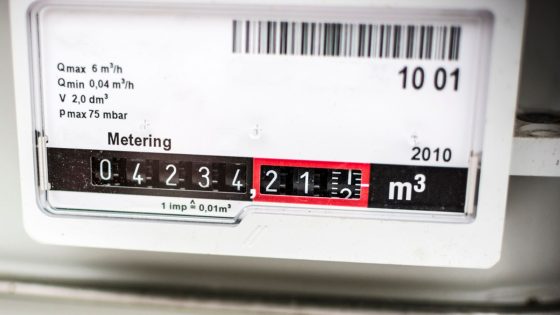Millions of people are being urged to send meter readings to their energy supplier this weekend to ensure they don’t overpay.
The regulator’s price cap drops 12.3% on Monday 1 April, from a typical £1,928 per year for a dual-fuel household to £1,690 – an average saving of about £20 per month.
Money blog – latest updates
People without a smart meter who are on a standard variable tariff (SVT) should send readings so their company has an up-to-date record when the prices change.
“If you delay submitting your readings, some of your energy usage could end up being charged under the higher rates we’re currently facing,” said Ben Gallizzi, energy spokesman for comparison site Uswitch.
This could happen as firms will estimate usage if they don’t have recent readings.
However, if you have a smart meter you shouldn’t have to worry as it’s set up to automatically ensure you are billed correctly.
Uswitch says a week of energy at the current rates is £4.65 more expensive for the average household than the incoming rates.
About 10 million customers are thought to be on a SVT without a smart meter.
The combination of the cheaper rates and warmer weather is estimated to mean the average household will spend £127 on gas and electricity in April, compared with £205 in March.
Nearly a fifth of people without a smart meter have not submitted a reading in the last three months and 4% haven’t done it for a year, according to a Uswitch survey of 2,000 people.
Read more:
What is the price cap and how does it work?
Twelve percent of these customers said they didn’t know where their meter was, while 14% didn’t know how to take a reading.
People without a smart meter are advised to read their meter every month to improve the accuracy of their bills.
The price cap is set by energy regulator Ofgem and is being cut again from the extreme highs of recent years – when it reached over £4,000 – thanks to a drop in wholesale prices,
Ofgem also launched a consultation on the energy price cap this week, floating options such as a cap based on vulnerability and when energy is used.
The cap, which affects England, Scotland and Wales, was introduced in January 2019 to prevent people on variable tariffs being ripped off.
Initially it was changed a couple of times a year but since 2022 it has been updated every three months.
Source Agencies




